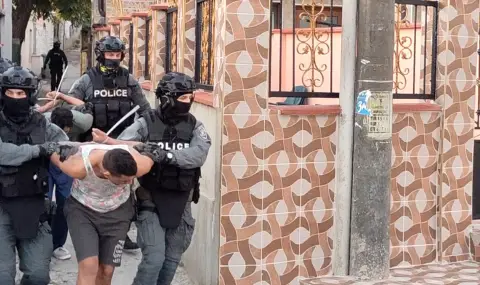Comment by Veselin Stoynev:
According to the latest national representative survey by the "Market Links" agency, conducted at the start of the election campaign, 48% of Bulgarians are discouraged from voting because of the bought and controlled vote. And 55% believe that there will be more attempts to manipulate votes in the elections on October 27 than before.
From a rational point of view, this is a paradox. In Bulgaria, the threat of a bought and controlled vote, instead of arousing the desire to vote in order to reduce its weight, on the contrary, reduces voter turnout. Sociologists clearly need to delve into in-depth research to understand what lies behind these attitudes. Without them, we can only make assumptions, hoping for reliability.
The additional justification "where can I vote for them"
It seems that many people are looking for an excuse why they won't vote. Moreover, well over half of the voters won't go to the polls anyway, and they are included in the study. And they are apparently finding another reason to abstain from voting – besides the fact that there is no one to vote for, the parties participating in the elections are massively buying votes, where can I "where can I" vote for them. Thus, the lack of a positive choice receives a second legitimation – "not to get dirty". The electoral terrain is so tainted, why should I even get my hands dirty, when I don't have my own "pebble in the mud" anyway.
However, even significant shares of the voters of the current parliamentary parties feel discouraged from voting because of the expectations of massive bought and controlled votes – about 40 percent of the supporters of PP-DB, GERB, BSP, ITN and "Velicie". Paradoxically, this share is highest among the voters of DPS-New Beginning (57%), and the smallest - among the expected biggest victims of bought and controlled votes - DPS-Dogan (21%). The data on the voters of the two DRFs can hardly be rationalized at all in the turbulent situation of the split, because it is not clear how stable their attitudes are and what the credibility of the declarations "who is who" is.
Symptom of melting electoral cores and peripheries
For the voters of the other parties, the leading explanation would probably be frustration with vote-buying by opposing formations. However, this, as with non-voters, may also be a search for an excuse to distance themselves from their own party, i.e. it may be a symptom of melting electoral cores and thinning electoral periphery.
In both cases, however – Both among non-voters, seeking additional justification for their passivity, and among party electorates that are shrinking, avoiding voting on the grounds of expecting massive bought and controlled votes is a manifestation of civic irresponsibility. Because responsible civic behavior means the following: first, for the citizen to be outraged and to exert civic pressure on institutions to counteract vote-buying, and second, to vote, albeit with disgust, for the formation he least dislikes in order to invalidate the bought and controlled vote (voting with "I do not support anyone" is a vote of impudence, because it does not participate in the distribution of seats in parliament).
Can anything change if there is civic, political, and institutional opposition to vote-buying? One politician announced over 50 names with nicknames like from the 1990s, of vote-buyers throughout the country. The informal group of Bulgarian Elves – BG Elves, published on Facebook the real names, which swelled to 200, standing behind these nicknames and who they work for. There was no institutional reaction to these public signals. The prosecutor's office in Gabrovo finally took matters into its own hands (hopefully it wasn't just "out of godfather shame") and assigned SANS to investigate the allegations made by the politician and candidate-MP in question about vote traders with nicknames. And the Ministry of Interior reports actions in Burgas and in the capital's "Hristo Botev" district for trading votes through swindles and a price per vote of 100-150 leva to some "solo" players.
The Ministry of Interior knows best who buys where and for whom
The Ministry of Interior knows very well locally who and how is buying and controlling votes. And if there is centralized political will, it can very easily stop them. The problem is that buying votes is far from being an activity for solo players, and is also the result of political will that permeates institutions and can only be countered with a stronger political will and/or civil action. And if and when it starts to yield results, the voters' abstention from voting may also begin to melt. Because they will lose their secondary justification for not voting and will see that it makes sense for them to make efforts with their free vote to invalidate the dependent vote. Simply put, the voter turnout on October 27 depends first and foremost on the Ministry of Interior and the National Security Agency.
